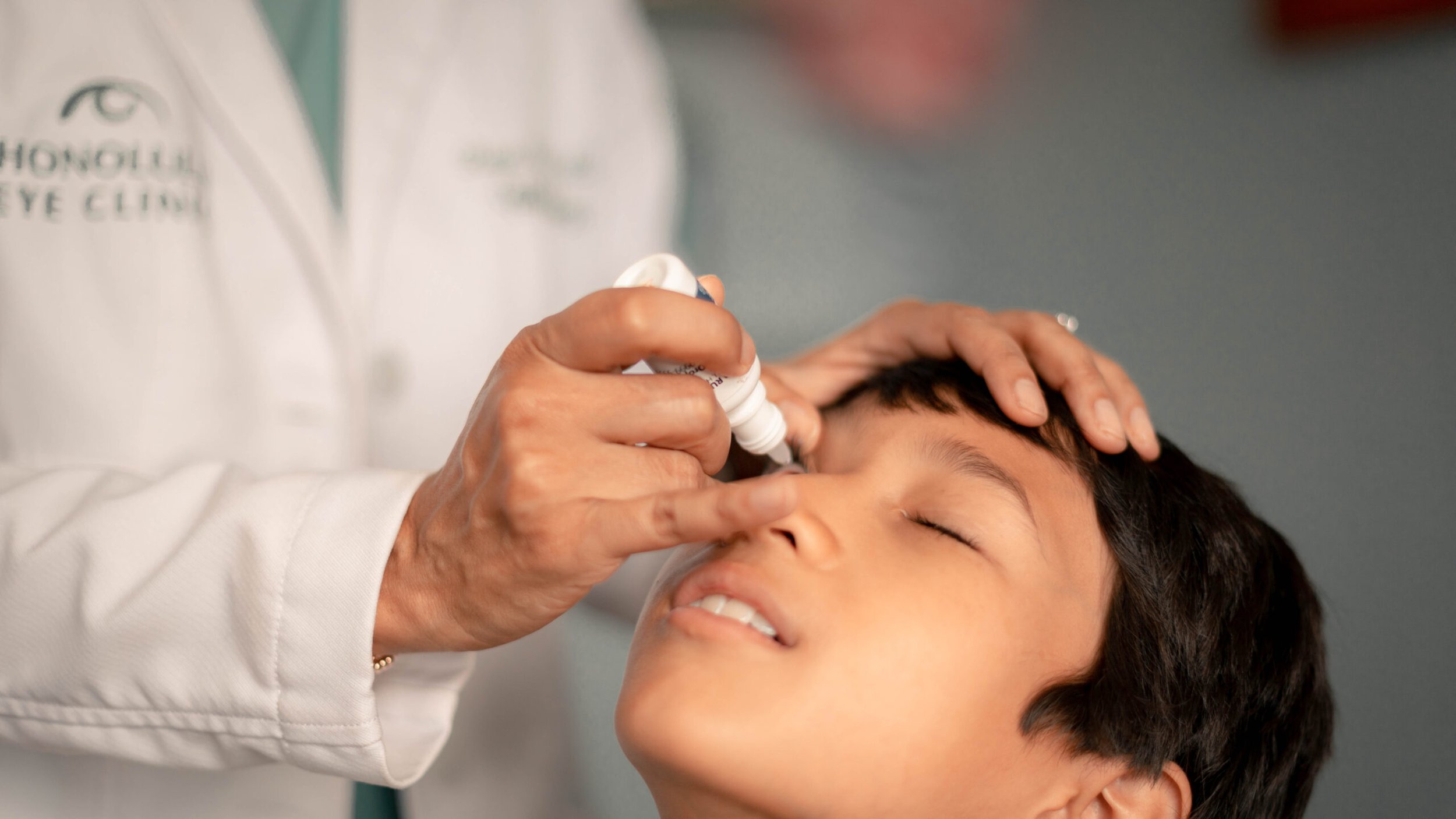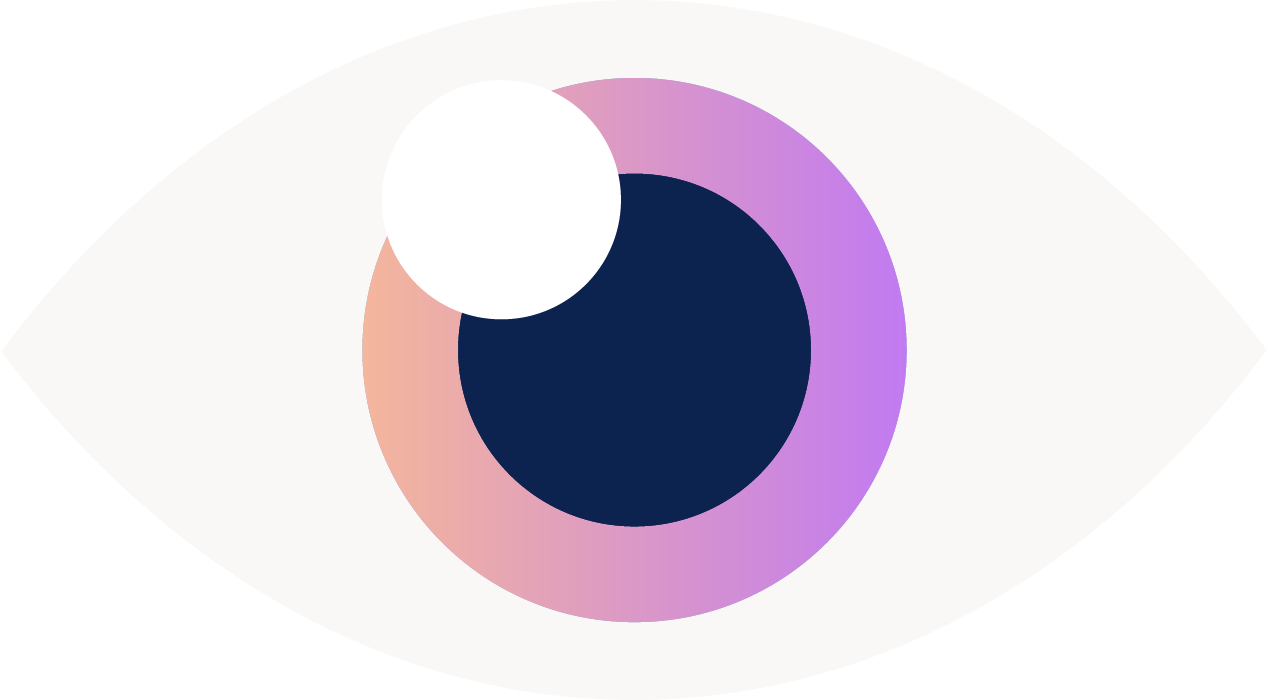
Does My Baby Need Glasses?
As a board-certified pediatric ophthalmologist and adult strabismus surgeon, I’m often asked: How do I know if my baby needs glasses? In this episode, I walk you through the visual milestones of infancy and early childhood, how vision develops in the first year of life, and the signs to watch for if something might be off. I explain how we check vision in babies (yes, even when they can’t read an eye chart), what those eye exams actually tell us, and when glasses—or a referral to a pediatric ophthalmologist—might be necessary. Whether you’re a new parent, a pediatrician, or just curious, this episode will give you a clearer understanding of how your baby sees the world—and when it’s time to step in.

What Parents Need to Know About Nearsightedness in Kids (Myopia)
As a board-certified pediatric ophthalmologist and adult strabismus surgeon, I’m passionate about helping parents understand the often confusing world of children’s vision health. In this episode, I break down what every parent needs to know about nearsightedness, how screen time affects your child’s eyes, and the real, practical steps you can take to protect their sight. I combine the latest research with what I see every day in clinic—and as a mom of three—to help you feel more confident navigating your child’s vision in today’s digital world.

Snow And Sunglasses: Protecting Your Eyes This Winter
Do you really need sunglasses in the snow? What about on cloudy days? In today’s episode, Dr. Rupa Wong, ophthalmologist, is sharing why sunglasses are a must in winter—yes, even when the skies are overcast. Snow reflects up to 80% of UV rays, which can double your UV exposure and increase your risk of serious eye damage.

How Much Screen Time Should Your Baby Have?
Is screen time harmful for babies? What does the science really say? In this episode of It’s Good to See You: Eye Health, Vision Care & More, Dr. Rupa Wong breaks down the American Academy of Pediatrics (AAP) recommendations, dives into fascinating studies on how screens affect the developing brain, and explores the often-overlooked issue of secondhand screen exposure. You’ll learn:• What the AAP and the American Association for Pediatric Ophthalmology and Strabismus (AAPOS) recommend for screen time.

Pink Eye: When Do You Need An Antibiotic?
In this episode of It's Good to See You: Eye Health, Vision Care & More, Dr. Rupa Wong dives into the details of one of the most common eye complaints—pink eye, or conjunctivitis. Not all pink eye is the same, so understanding the differences between viral, bacterial, and allergic conjunctivitis can help you recognize symptoms, manage treatment, and avoid unnecessary antibiotics. Dr. Wong also explores less common causes, including chlamydial and HSV conjunctivitis, and shares insights from the latest research in the Journal of the American Medical Association (JAMA) on antibiotic use for pink eye in children.

Health Q&A: Everything You Need to Know About Styes: Causes, Treatments & When Surgery Is Necessary
In this Q&A episode, Dr. Wong answers listener questions about one of the most common (and pesky!) eye issues—styes. From what causes them to the best ways to treat them, and even when surgery might be necessary, this episode covers everything you need to know to keep your eyes healthy and stye-free. Whether you're wondering if makeup is to blame, what treatments are best for kids, or if that stubborn bump needs a little extra help to go away, Dr. Wong’s got the answers!

What to Expect at Your Child’s Eye Exam: A Pediatric Ophthalmologist’s Guide
In this episode of It's Good to See You: Eye Health, Vision Care & More, Dr. Rupa Wong, a pediatric ophthalmologist, dives into everything parents need to know about their child’s eye exam. From when to schedule that first exam to what happens during each step, Dr. Wong walks parents through the entire process, addressing common questions and concerns to make sure they’re fully prepared. Whether it’s understanding the importance of a cycloplegic refraction, why eye exams are essential beyond vision screenings, or tips for making the visit a positive experience, this episode equips parents with all they need to know to feel confident about their child’s eye care.

Eating For Your Eyes: The Best Foods For Vision Health
In this episode, Dr. Rupa Wong breaks down the best foods for your eye health, exploring beyond the common myth that carrots are the ultimate eye superfood. While carrots have their benefits, Dr. Wong uncovers the powerhouse nutrients that truly protect your vision and prevent age-related eye conditions like macular degeneration, cataracts, and dry eye. Backed by evidence from peer-reviewed studies, she covers five key nutrients—lutein, zeaxanthin, Vitamin C, Vitamin E, omega-3 fatty acids, and zinc—and discusses how these nutrients work to protect your eyes, along with the best natural food sources to incorporate into your diet.

The Ultimate Guide To Myopia Management For Kids: Atropine, MiSight, Ortho-K & Stellest/Miyosmart Glasses Explained
In this episode of It’s Good to See You, Dr. Rupa Wong dives deep into the world of myopia management for kids. With the rising prevalence of myopia, or nearsightedness, it’s more important than ever for parents to understand how they can help slow down its progression in their children. Dr. Wong explains the science behind myopia, including Dr. Earl Smith’s theory of hyperopic defocus, and why addressing this early can protect your child’s vision for the long term. She also explores four effective myopia management treatments — low-dose atropine, MiSight contact lenses, orthokeratology (Ortho-K), and special spectacle lenses like Stellest and Miyosmart glasses. If your child struggles to see clearly or you’ve noticed them squinting at the board, this episode will provide valuable insights and actionable advice.

Eye Health Q&A: Amblyopia & Lazy Eye
In this informative Q&A episode of It’s Good to See You, Dr. Rupa Wong addresses some of the most frequently asked questions about amblyopia, one of the most common childhood eye conditions. Dr. Wong dives deep into the causes, treatment options, and prognosis for individuals diagnosed at different stages of life.
